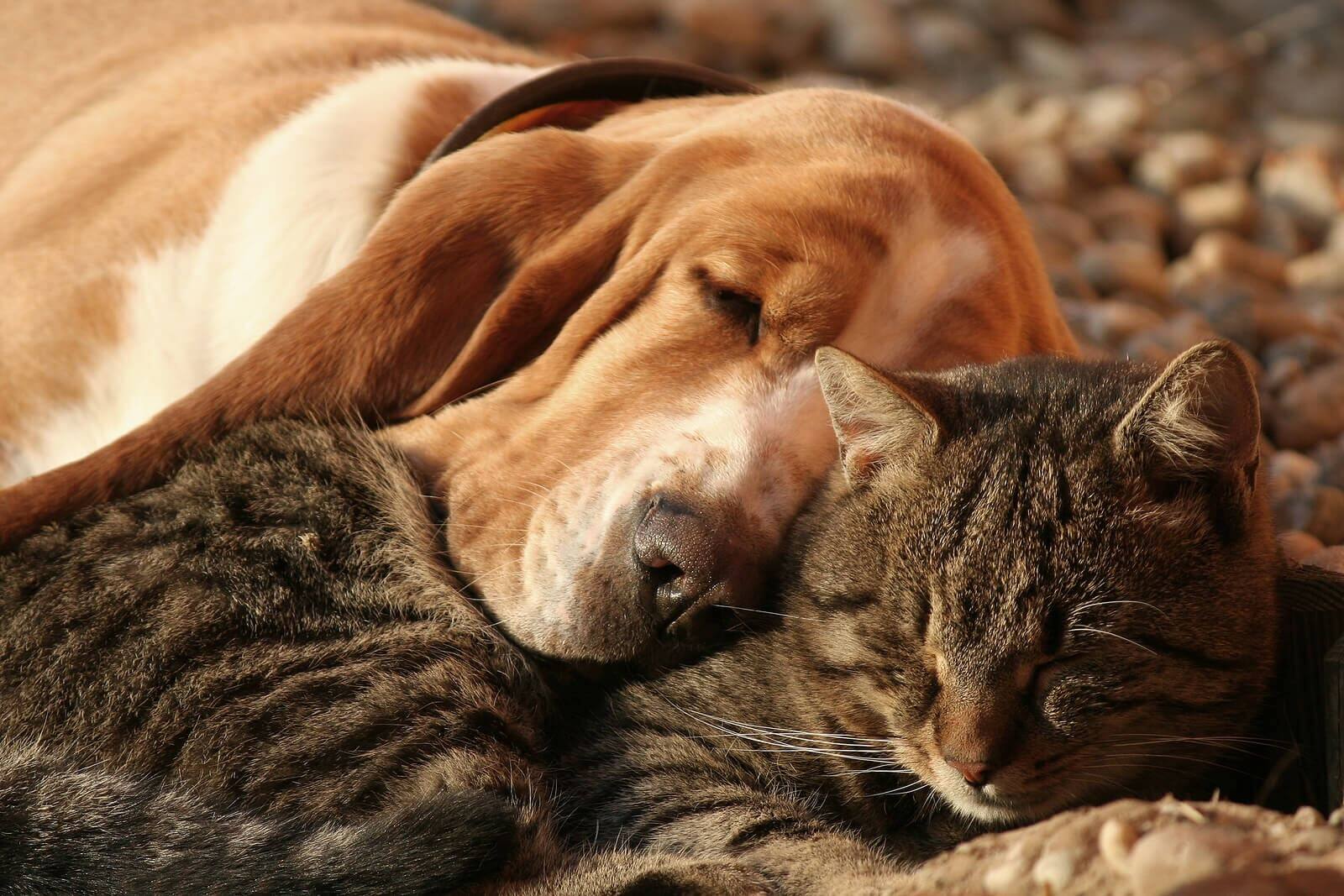
-
Find the right food for your petTake this quiz to see which food may be the best for your furry friend.Find the right food for your petTake this quiz to see which food may be the best for your furry friend.Health CategoryFeatured products
 Adult Oral Care Small & Mini Chicken, Rice & Barley Recipe Dog Food
Adult Oral Care Small & Mini Chicken, Rice & Barley Recipe Dog FoodClinically proven kibble technology to reduce plaque & tartar build-up, specially designed for small & mini dogs
Shop Now Adult 7+ Small Bites Chicken Meal, Barley & Rice Recipe Dog Food
Adult 7+ Small Bites Chicken Meal, Barley & Rice Recipe Dog FoodSupports energy level and beautiful coat in mature dogs who prefer smaller kibble
Shop Now Adult Small Bites Chicken & Barley Recipe Dog Food
Adult Small Bites Chicken & Barley Recipe Dog FoodSupports lean muscle for dogs who prefer smaller kibble
Shop NowFeatured products Sensitive Stomach & Skin Chicken & Beef Dinner
Sensitive Stomach & Skin Chicken & Beef DinnerGourmet daily nutrition, carefully made. Tasty chunks with chicken & beef in a decadent gravy. Supports digestive health, nourishes skin and promotes a lustrous fur.
Shop Now Adult 7+ Tender Tuna Dinner Cat Food
Adult 7+ Tender Tuna Dinner Cat FoodWith delicious chunks in a decadent gravy
Shop Now Adult Chicken & Spinach Casserole Cat Food
Adult Chicken & Spinach Casserole Cat FoodWith delicious chunks in a decadent gravy
Shop Now -
DogCat
- Cat Tips & Articles
-
Health Category
- Weight
- Skin & Food Sensitivities
- Urinary
- Digestive
- Kidney
- Dental
- Serious Illness
-
Life Stage
- Kitten Nutrition
- Adult Nutrition
Featured articles Water
WaterWater is the most important nutrient of all and essential for life. Animals can lose almost all their fat and half their protein and still survive, but if they lose 15% of their water, it will mean death.
Read MoreHill's Australian Bushfire EffortsRead More Pet Food Storage Tips
Pet Food Storage TipsWhere you store your cat and dog food can make a big difference in the quality and freshness once it is opened. Here are some common questions and recommendations for optimal storage for all of Hill’s dry and canned cat and dog food.
Read More -

How many differences between dogs and cats can you spot? They may both be furry (most of the time) but both animals are very different from each other. In fact, the difference between dogs and cats may not be as easy to spot as you think.
The Way Dogs and Cats Exercise Is Quite Different
If you're looking for a workout buddy, a cat may not be your best choice. While cats are known to be agile and will occasionally spend time playing games with you, they aren't known to be athletic, per se. Dogs, on the other hand, are usually great exercise pals. Many breeds enjoy running and hiking, and will happily trek along on any trip.
Just because cats aren't into exercise, doesn't mean they aren't nimble. Cats have lean muscles and will pounce or leap when stalking prey, even if that prey happens to be a fun feather toy you're swaying back and forth on the carpet.
Playtime with dogs and cats is also very different. While many dogs enjoy a game of fetch, cats will often watch you toss a ball, and then walk away, unwilling to join in on your game. For a cat, fun playtime may consist of pouncing on your feet when you're lying under the covers and sleeping. Cats are nocturnal animals, says the Animal Humane Society, and enjoy playing at night, when your dog is most likely snoring gently.
Pack Mentality Differs for the Two Species
Dogs are pack members, and throughout history, have worked in groups. Because of this, they see their pet parent as the pack leader, looking for direction and following it closely. Dogs tend to work together to get things done, so your dog will involve himself in your routines as a way to connect with you.
Cats are solitary hunters. They are very independent creatures, and often don't rely on their humans for much past their basic needs of food and a clean litter box. They are content being alone for hours at a time. To connect with a cat, you often need to take the first step. Just because they aren't pack animals, doesn't mean that they don't enjoy getting a nice back scratch from their human family.


Tasty Tips
Young pets may need several visits in their first year for vaccinations. Adult pets generally benefit from annual check-ups, while senior or special-needs pets might require more frequent visits.
Behavior Is One of the Main Differences Between Dogs and Cats
During the day, your dog is active and playful. While he may take an occasional nap, he prefers being at your side. A cat, on the other hand, sleeps away much of the daylight hours, preferring to jump into turbo time right before you jump into bed. Cats are more playful in the evenings, but there are many cats who make time for their pet parents during the day. A routine helps get your cat more on your schedule.
One major difference between dogs and cats are the way they sound. Your dog will bark, howl or growl, whereas a cat meows or snarls.
When giving warning signals, cats will often arch their back and the hair on their back may lift. Dogs will show warning by baring teeth and staring. Both animals will usually make sounds, such as growling or snarling, when warning another animal or human to keep their distance.
Behavior is tough to compare too closely, because, like humans, dog and cat behavior and personality can vary so greatly. Some cats are extroverts; other dogs are introverts. Species and breed only determine behavior so much. The rest is left to their individual personality and the environmental factors that they are raised in every day.
Food Is Another Difference Between Dogs and Cats
Dogs and cats enjoy eating. However, cats need to ingest smaller and more frequent meals than dogs. It's important to thoroughly understand your pet's nutritional needs. Speak with your veterinarian to determine the perfect meal plan for your furry friend.
Physical Traits of Each Pet Are Obvious to the Eye
Claws are evidence of the difference between dogs and cats. Your dog's claws are duller than a cat's, simply because they are always out, and the ground he walks on wears down the claws. A cat has very sharp, retractable claws that are used for protection and to latch on to things, such as something she were to climb.
Dogs and cats can be excellent hunters. However, the way they approach their prey is very different. Cats are climbers and use their claws to scale trees and then without effort, leap from high places. Dogs are earthbound creatures. While some are known for jumping, dogs are more likely to use their nose to find prey or speed to catch it.
Dogs and Cats Use the Bathroom Differently
When there's a rainstorm, a cat that uses the litter box may win you over quicker than a dog who needs to relieve himself outside and is very picky about the exact piece of grass on which to "go." However, it's possible to house train your dog. Cats learn to use a litter box quickly, often by instinct and require only a few reminders.
Training Shows Differences Between Dogs and Cats
It's a misconception that cats aren't trainable. Many are! However, cats often express their opinion. Remember, dogs are pack animals who closely and willingly follow their master's orders. Cats don't share that same obedience. Cats are independent. It's important to keep all feline training sessions very short, but be consistent and keep trying, as their memory lasts much longer than a dog's. Unlike cats, dogs can be trained in a group. They can also endure longer sessions to help them remember everything they've learned.
You may need to approach training differently with dogs and cats, but both species enjoy treats as a form of praise for their hard work.
While dogs and cats are very different, of course, they both are great companions. All they need is love and care from their pet parents to be happy, healthy animals.
Contributor Bio

Erin Ollila
Erin Ollila is a pet enthusiast who believes in the power of words and how a message can inform, and even transform its intended audience. Her writing can be found all over the internet and in print. Reach out to her on Twitter @ReinventingErin or learn more about her at http://erinollila.com.


Erin Ollila believes in the power of words and how a message can inform—and even transform—its intended audience. Her writing can be found all over the internet and in print, and includes interviews, ghostwriting, blog posts, and creative nonfiction. Erin is a geek for SEO and all things social media. She graduated from Fairfield University with an M.F.A. in Creative Writing. Reach out to her on Twitter @ReinventingErin or learn more about her at http://erinollila.com.
Related products

With delicious chunks in a decadent gravy

Supports energy level and beautiful coat in mature dogs who prefer smaller kibble

Gourmet daily nutrition, carefully made. Tasty chunks with chicken & beef in a decadent gravy. Supports digestive health, nourishes skin and promotes a lustrous fur.

Supports lean muscle for dogs who prefer smaller kibble
Related articles

Learn what to look for in healthy pet food & nutrition, including ingredients, quality of the manufacturer, your pet's age, and any special needs they have.

Where you store your cat and dog food can make a big difference in the quality and freshness once it is opened. Here are some common questions and recommendations for optimal storage for all of Hill’s dry and canned cat and dog food.

Water is the most important nutrient of all and essential for life. Animals can lose almost all their fat and half their protein and still survive, but if they lose 15% of their water, it will mean death.

Put your pet on a diet without them knowing
Our low calorie formula helps you control your pet's weight. It's packed with high-quality protein for building lean muscles, and made with purposeful ingredients for a flavorful, nutritious meal. Clinically proven antioxidants, Vitamin C+E, help promote a healthy immune system.
Put your pet on a diet without them knowing
Our low calorie formula helps you control your pet's weight. It's packed with high-quality protein for building lean muscles, and made with purposeful ingredients for a flavorful, nutritious meal. Clinically proven antioxidants, Vitamin C+E, help promote a healthy immune system.

